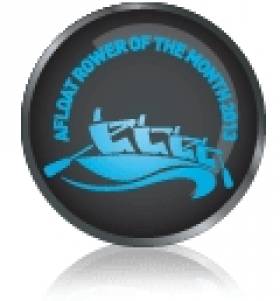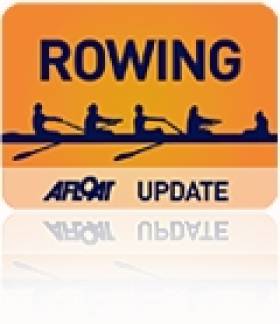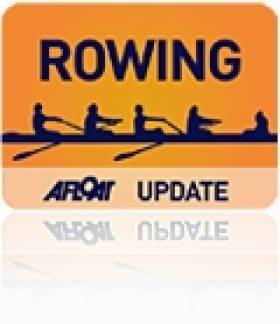Displaying items by tag: Chungju
Kennedy and Dukarska are Afloat Rowers of the Month for August
#ROWING: The Afloat Rowers of the Month for August are Leonora Kennedy and Monika Dukarska. The Enniskillen woman, who had rowed and won medals with Britain, and her Killorglin teammate only began to work together earlier this summer, yet they formed a women’s double which finished a creditable 10th at the World Rowing Championships in Chungju in Korea. As preparations for the new season begin, this crew gives hope that Ireland rowing may begin to gather momentum again on the world stage.
Rower of the Month awards: The judging panel is made up of Liam Gorman, rowing correspondent of The Irish Times and David O'Brien, Editor of Afloat magazine. Monthly awards for achievements during the year will appear on afloat.ie and the overall national award will be presented to the person or crew who, in the judges' opinion, achieved the most notable results in, or made the most significant contribution to rowing during 2013. Keep a monthly eye on progress and watch our 2013 champions list grow.
Lambe Denied by Italy's Zacco at World Rowing Championships
#WRChamps: Italy’s Denise Zacco denied Claire Lambe a win in the C Final of the lightweight single sculls at the World Rowing Championships in Chungju in Korea. Lambe led through the first three quarters of the 2,000 metres, but Zacco judged the race superbly: by 1500 metres she had passed Yoo Jin Ji of Korea; she closed on Lambe, then passed her in the last 200 metres.
World Championships, Day Six (Irish interest)
Women
Lightweight Single Sculls – C Final (Places 13 to 18): 1 Italy (D Zacco) 8:05.21, 2 Ireland (C Lambe) 8:07.38, 3 Korea (Yoo Jin Ji) 8:08.75, 4 Japan 8:18.46, 5 Singapore 8:24.11, 6 India 8:32.05.
Good Second Half Not Enough for Ireland Women's Double
#WorldRowingChampionships: Ireland’s double scull of Monika Dukarska and Leonora Kennedy took fourth in their heat at the World Rowing Championships in Chungju in Korea this morning and must compete in a repechage to secure a place in the A/B Semi-Finals.
A place in the top three was the target: Lithuania and Denmark were the clear one-two from half way, with Ukraine in third and Ireland and Russia trailing. Dukarska and Kennedy upped their rate in the second half of the race, engaging in a battle with Russia which they won. They overlapped Ukraine in the closing stages but could not head them.
World Rowing Championships, Day Two (Irish interest)
Women
Double Sculls – Heat One (First Three Directly to A/B Semi-Final; rest to Repechage): 1 Lithuania (D Vistartaite, M Valciukaite) 6:52.09, 2 Denmark (M Petersen, L Jakobsen) 6:56.34, 3 Ukraine (A Kravchenko, O Buryak) 7:02.42; 4 Ireland (M Dukarska, L Kennedy) 7:03.92, 5 Russia 7:09.73.































































